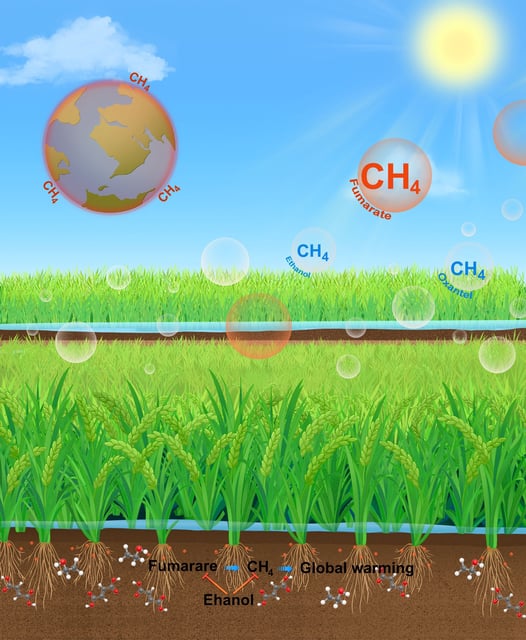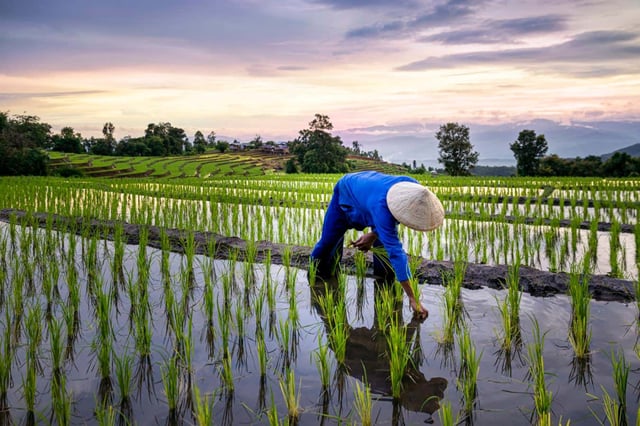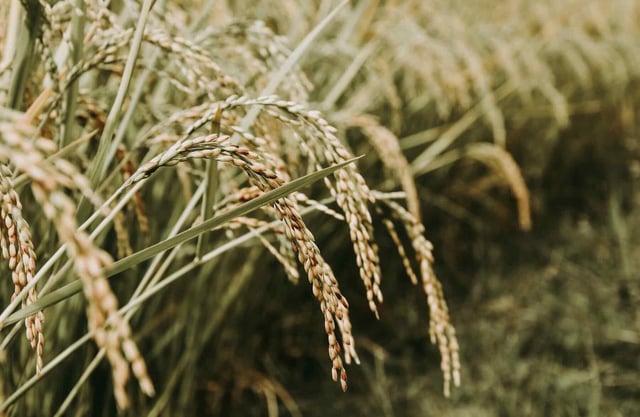Overview
- Rice cultivation accounts for about 12% of global methane emissions, a potent greenhouse gas contributing to climate change.
- Researchers identified key root exudates, fumarate and ethanol, which influence methane emissions from rice fields.
- By crossbreeding high-yield and low-emission rice varieties, scientists created a strain emitting 70% less methane with yields of 8.96 tons per hectare, nearly double the global average.
- Field trials in China confirmed the low-methane strain’s effectiveness, and soil treatments with ethanol or oxantel also reduced emissions by 60% without affecting yields.
- Efforts are underway to register the new rice variety and explore integrating emission-reducing treatments into commercial farming practices.


